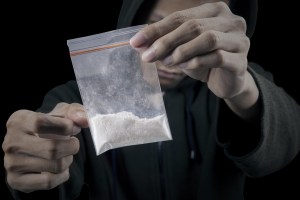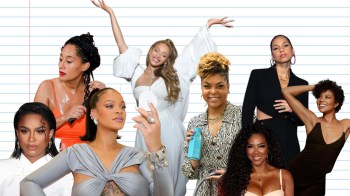
Source: Getty
In case you weren’t aware, North Carolina passed a law in 2013 that would require drug testing for all welfare applicants in their Work First program, a law that just went into effect last year.
Earlier this week, state officials released prelim data on what they found from conducting these screenings. And as expected, the results were pretty underwhelming.
Of the 7,600 applicants and recipients, screened between August 2015 to December 2015, about 2 percent were referred for drug testing. “The 21 positive tests represent less than 0.3 percent of the people screened,” the Charlotte Observer reported.
Not everyone was drug screened though. The process begins with social workers being asked which households have a history of drug use in the past 12 months. With that requested information, adults/families are chosen to be tested for range of narcotics including marijuana, cocaine, methamphetamine, heroin, opium and phencyclidine, or PCP,” WRAL.com noted. A positive test, not showing up to initially screened or coming for a follow-up session can result in a total or partial loss of benefits.
What kind of benefits are we talking about here?
Work First is a state entitlement program that “offers short-term cash benefits, training and support services to families. In about 62 percent of Work First cases, only children get benefits — and no adults fall under the test requirement,” writes the Observer. Clearly, losing benefits for being drug dependant seems problematic, but Wayne Black, state Division of Social Services director, claims the testing program doesn’t cut off support for children or other family members.
“Those who do not take the test, refuse to take the test or test positive for drugs, as long as they complete all the other requirements of eligibility, are able to get a Work First check, but it would be reduced by the amount of the head of the household,” he told WRAL.
Guess that makes it all better. <insert eye roll>
Black added, “Individuals who test positive are able to go seek drug treatment and then come back and do a test after 30 days, but they have to pay for the [$55] test the second go-round in order to get back on the program.”
Sigh.
When the law was passed in 2013, state Gov. Pat McCrory vetoed it saying it would unfairly punish people, the act of testing residents was intrusive and that the state lacked money to pay for this program, says the Associated Press However, the state legislature overrode the veto and later funded the program through monies from the Dept. of Health and Human Services.
McCory wasn’t the only state politician to speak out. When the law was passed, Sen. Gladys Robinson was clear that it was a “waste of money,” and said this week’s results “proves her right.”
“They found very few applicants. Plus, the process is already in place in terms of asking questions and making those referrals,” Robinson said. “So, we just wasted state dollars, in terms of that piece of legislation and in terms of the time and staff all across the state.
While proponents claim that they are trying to help people with drug addiction get help, opponents aren’t having it, claiming that laws like these have classist and racist undertones, further stigmatize drug use and needing welfare and discourage those who need public assistance to ask for it because of the testing involved.
Sadly, North Carolina isn’t the only state to have mandatory drug tests for its residents to receive public assistance. According to National Conference of State Legislature, twelve other including Alabama, Arkansas, Arizona, Florida, Georgia, Kansas, Michigan, Mississippi, Missouri, North Carolina, Oklahoma, Tennessee and Utah, have similar policies.
[SOURCES: Charlotte Observer, WRAL.Com, Associated Press, NCSL]
RELATED LINKS:
Did Meek Mill Fail His Drug Test Because Of A Protein Shake?





















